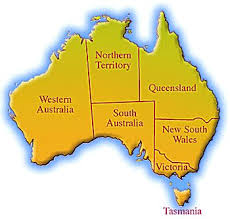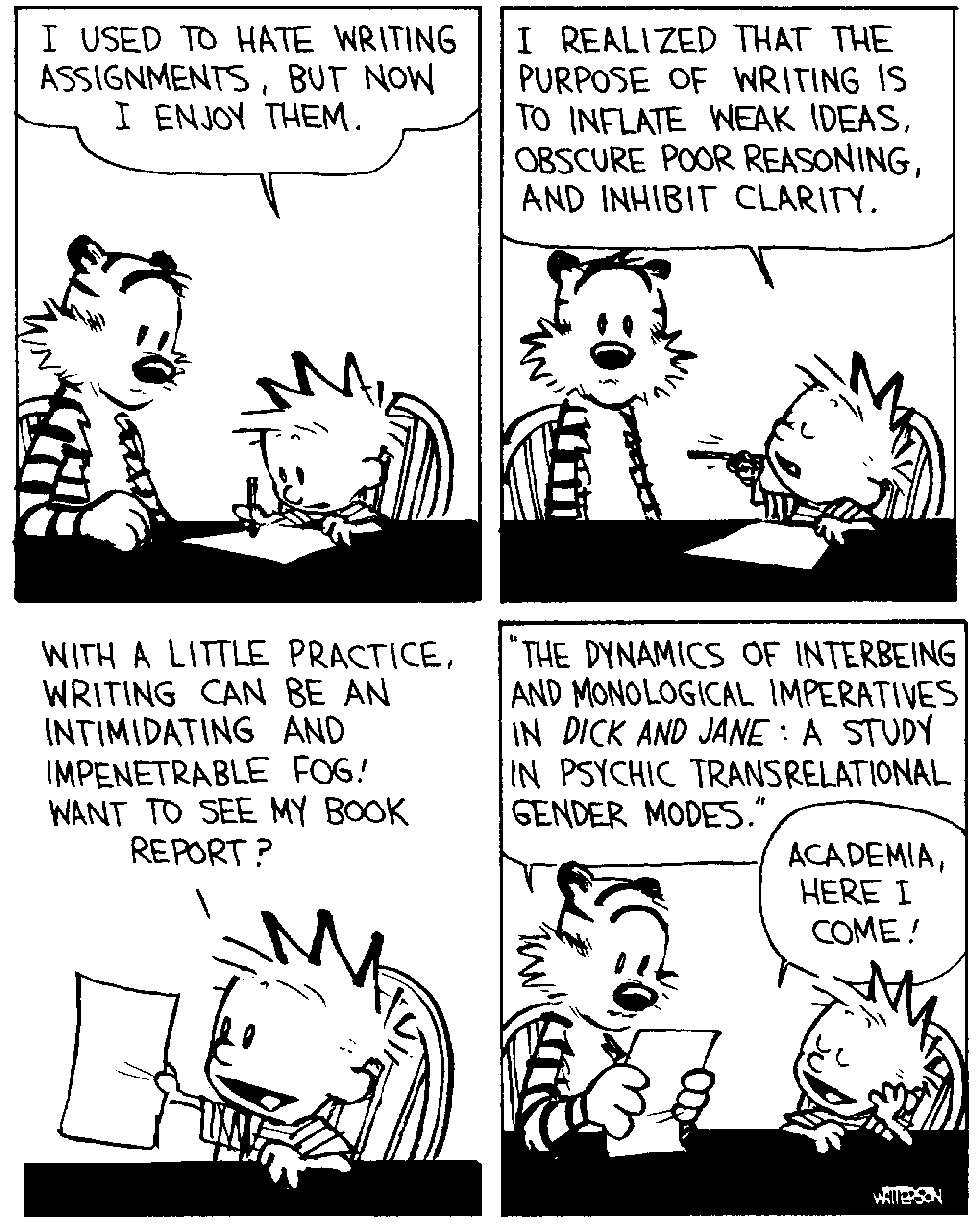Tuesday 30 April 2013
Monday 29 April 2013
A more visual history of English.
It's not very easy to understand and maybe the speaking is too fast, but I can't resist the temptation to share it with you because it's one of the best videos I've ever seen.
(You've got the option of using subtitles)
(You've got the option of using subtitles)
Sunday 28 April 2013
Saturday 27 April 2013
A Short History of the English Language
The history
of the origins and development of English
The history of the English language really started with the arrival of three Germanic tribes who invadedBritain Denmark
and northern Germany Britain Wales ,
Scotland and Ireland England

Germanic invaders enteredBritain
Old
English (450-1100 AD)
Middle
English (1100-1500)
Early Modern
English (1500-1800)
The history of the English language really started with the arrival of three Germanic tribes who invaded

Germanic invaders entered
Old
English (450-1100 AD)
 Part of Beowulf, a poem written in Old English. |
The invading Germanic
tribes spoke similar languages, which in Britain
Middle
English (1100-1500)
 An example of Middle English by Chaucer. |
In 1066 William the
Conqueror, the Duke of Normandy (part of
modern France ), invaded and
conquered England Normans Royal Court Britain
Modern English
Early Modern
English (1500-1800)
Towards
the end of Middle English, a sudden and distinct change in pronunciation (the
Great Vowel Shift) started, with vowels being pronounced shorter and shorter. From
the 16th century the British had contact with many peoples from around the
world.

Hamlet's famous "To be, or not to be"
lines, written in Early Modern English by Shakespeare. |
Friday 26 April 2013
Thursday 25 April 2013
How to be more polite in English
Especially for my PET students
Wednesday 24 April 2013
Tuesday 23 April 2013
Secrets to Using Prepositions in English
As I know they are usually a nightmare, I hope this article helps you to understand prepositions better
 I’m sure you
all probably know that the book is ON the table, but do you know exactly why
we say “on” instead of ABOVE,
or OVER, or another of the
hundreds of prepositions that exist in English?
I’m sure you
all probably know that the book is ON the table, but do you know exactly why
we say “on” instead of ABOVE,
or OVER, or another of the
hundreds of prepositions that exist in English?
·
Learning
Prepositions with Situational Reference
How the use ON
How to use IN

 I’m sure you
all probably know that the book is ON the table, but do you know exactly why
we say “on” instead of ABOVE,
or OVER, or another of the
hundreds of prepositions that exist in English?
I’m sure you
all probably know that the book is ON the table, but do you know exactly why
we say “on” instead of ABOVE,
or OVER, or another of the
hundreds of prepositions that exist in English?
Using prepositions in English can be a big problem and
they are so often misused by English learners. The English language actually
uses prepositions in so many ways, and if you can master how to use them correctly, your English can become
really natural and start to flow much more.
·
Learning
Prepositions with Situational Reference
When speaking English, every
student is faced with trying to understand the 3 most common prepositions and
how and when to use them. I’m sure if you’re a Brazilian and like funk music,
you know that the book is always ON the table, but why is it on and how can I
know when I should use it?
Let’s go through the 3 most
common prepositions and look at exactly how you use them.
How the use ON
ON is used when something is making contact with a surface. The
book is ON the table because the book is making contact with the surface of the
table.
Other examples of how we use on
in this way:
§
I live ON First street
§
He has a green shirt ON (the shirt is making contact with
my skin)
§
I saw it ON tv (the images are viewed on the
surface of the television)
ON is also used
for days; on Monday, On Friday, On the 20th of December, On my holiday etc.
How to use IN
IN is used to describe that something is physically INSIDE some kind of barrier or
border
When I say I live IN Brazil,
it’s because I am inside the Brazilian border.
Other examples using IN:
§
I used to live IN Australia
§
I’m stuck IN traffic (inside the barrier of
traffic)
§
I read it IN the newspaper (inside the closed
paper)
*we use ON for pages
*we use ON for pages
IN is also used with months and years; in
December, in 2011
Monday 22 April 2013
Ways to Improve Your English Writing
In this
article I’m going to give you some tips to help you improve your writing a lot.
These suggestions will help you not only improve the correctness of your
writing, but also your style and flow. Then let’s go!
· Read
I bet that
you think the first two points are kind of obvious. But some people really
don’t realize how important reading is to good writing.
Think of how
a child learns his first language. He listens to his parents talking all the
time for many months before he even opens his mouth. Just like listening is
important to become better at speaking, reading is vital to become better at
writing.
When learning
a new language you must OBSERVE and REPEAT. Observe and repeat. Observe and
repeat. Again and again. This is at the heart of learning any language. So,
master this – get really, really good at it and you will be an amazing language
learner.
When you read you observe someone else’s successful style—how
their language flows from sentence to sentence, how they use different
vocabulary, how they can paint a picture with their words. The more you read,the
better you’ll be able to emulate this.
You need to
collect books. Find styles that you like. And then mold your own style from
these. You’ll be impressed by how much your writing improves by reading more.
If you love books, you should join Good Reads. There you can make a list of books you’re reading,
you’ve read, and that you want to read and get recommendations for other books
you’ll like. In addition to this, you can have discussions about books and even
join book clubs. So you can read with a group and experience the book with them.
· Write
Yes, if you
want to become a better writer you should probably write. A good first step is
reading, but if you just read, your writing obviously won’t improve by itself.
But what
should you write?
Well, take a
moment and reflect. What do you like to read?
Sunday 21 April 2013
Friday 19 April 2013
Egg Idioms
I've found this video about English idioms with the word EGG. You shouldn't miss it.
American and British English
My students are usually interested in differences between American and British English. This is just an introduction.
Thursday 18 April 2013
Wednesday 17 April 2013
Modern Family: The Many Mispronunciations of Sofia Vergara
Although difficult to understand, it's hilarious!
Tuesday 16 April 2013
Sunday 14 April 2013
Wednesday 10 April 2013
The Story of Keep Calm and Carry On
Probably most of you have seen this logo in many different places with many different versions. This is its origin.
At the beginning of the Second World War, the British goverment created this logo to cheer people up, as the future seemed quite difficult. None of these posters were used and in 2000 one of them was discovered in a second-hand bookshop . Now watch the story
At the beginning of the Second World War, the British goverment created this logo to cheer people up, as the future seemed quite difficult. None of these posters were used and in 2000 one of them was discovered in a second-hand bookshop . Now watch the story
Tuesday 9 April 2013
Sunday 7 April 2013
20 ways to know you’ve become a local
I read this article last summer in The Olive Press, a newspaper I quite fancy. I found it really funny and also interesting to see the other (British) point of view. I hope you enjoy it.
20 ways to know you’ve become a local
The following list highlights some of the eccentricities of Spanish living that are now an everyday occurrence for expats.
20 ways to know you’ve become a local
The longer Brits live in Spain
The following list highlights some of the eccentricities of Spanish living that are now an everyday occurrence for expats.
1) You think adding lemonade or coke to red wine is perfectly
acceptable.
2) You can’t get over how early bars and clubs shut back home.
3) You aren’t just surprised that the plumber/decorator has turned up on time; you’re surprised he turned up at all.
4) You’ve been part of a botellon.
5) Not giving every new acquaintance two kisses seems so rude.
6) On MSN you sometimes type ‘jajaja’ instead of ‘hahaha’
7) You think aceite is a vital part of every meal. And you don’t understand how anyone could think olive oil on toast is weird.
8) A bull’s head on the wall of a bar isn’t a talking point; it’s just a part of the decor.
9) You’re amazed when TV ad breaks last less than half an hour.
10) You forget to say please when asking for things – you implied it in your tone of voice, right?
11) You don’t see sunflower seeds as a healthy snack – they’re just what all the cool kids eat.
12) Every sentence you speak contains at least one of these words: ‘bueno,’ ‘coño,’ ‘vale,’ ‘venga,’ ‘pues nada’…
13) You know what resaca means. And you had one at least once a week when you lived inSpain
14) You eat lunch after 2pm and would never even think of having your evening meal before 9pm.
15) You know that after 2pm there’s no point in going shopping, you might as well just have a siesta until 5pm.
16) You know how to change a gas bottle or bombona.
17) On a Sunday morning, you have breakfast before going to bed, not after you get up.
18) The fact that all the male (or female) members of a family have the same first name doesn’t surprise you.
19) You know that the mullet didn’t just happen in the 80s. It is alive and well inSpain
20) You know the difference between ‘cojones’ and ‘cajones’, ‘tener calor’ and ‘estar caliente’, ‘bacalao’ and ‘bakalao’…and maybe you learned the differences the hard way!
2) You can’t get over how early bars and clubs shut back home.
3) You aren’t just surprised that the plumber/decorator has turned up on time; you’re surprised he turned up at all.
4) You’ve been part of a botellon.
5) Not giving every new acquaintance two kisses seems so rude.
6) On MSN you sometimes type ‘jajaja’ instead of ‘hahaha’
7) You think aceite is a vital part of every meal. And you don’t understand how anyone could think olive oil on toast is weird.
8) A bull’s head on the wall of a bar isn’t a talking point; it’s just a part of the decor.
9) You’re amazed when TV ad breaks last less than half an hour.
10) You forget to say please when asking for things – you implied it in your tone of voice, right?
11) You don’t see sunflower seeds as a healthy snack – they’re just what all the cool kids eat.
12) Every sentence you speak contains at least one of these words: ‘bueno,’ ‘coño,’ ‘vale,’ ‘venga,’ ‘pues nada’…
13) You know what resaca means. And you had one at least once a week when you lived in
14) You eat lunch after 2pm and would never even think of having your evening meal before 9pm.
15) You know that after 2pm there’s no point in going shopping, you might as well just have a siesta until 5pm.
16) You know how to change a gas bottle or bombona.
17) On a Sunday morning, you have breakfast before going to bed, not after you get up.
18) The fact that all the male (or female) members of a family have the same first name doesn’t surprise you.
19) You know that the mullet didn’t just happen in the 80s. It is alive and well in
20) You know the difference between ‘cojones’ and ‘cajones’, ‘tener calor’ and ‘estar caliente’, ‘bacalao’ and ‘bakalao’…and maybe you learned the differences the hard way!
Saturday 6 April 2013
Friday 5 April 2013
SO AND SUCH
My friend Marivy very kindly gave me these exercises from her blog. Let's practise!
These ‘intensifiers’ are used to give emphasis.
So and such
A. So is used before:
1. adjectives and adverbs without nouns.
Ex: I’m so tired. I’ll have to go to bed.
2. much, many, little, few
Ex: You shouldn’t eat so much, Jack.
B. Such is used with or without an adjective before:
1. singular countable nouns ( the indefinite article a/an is also needed).
Ex: She’s got such a wonderful voice.
2. uncountable nouns and plural countable nouns (the article is not needed).
Ex: Our neighbors are such friendly people.
C. So and such can both be used with a that clause to talk about the results or consequences.
Ex: It was such a boring place that we decided to leave.
Ex: It was raining so hard we had to stop the car.
EXERCISE 1
EXERCISE 2
EXERCISE 3
EXERCISE 4
PRACTICE MORE:
GRAMMAR AND EXERCISES
EXERCISE 5
EXERCISE 6
EXERCISE 7
EXERCISE 1
EXERCISE 2
EXERCISE 3
EXERCISE 4
PRACTICE MORE:
Wednesday 3 April 2013
¿Cuál es tu nivel de inglés?
He encontrado este artículo donde se recopilan
varios tests de nivel de inglés que pienso son muy interesantes, no sólo para
aclarar vuestras dudas sobre vuestro nivel, sino también resultan una buena
manera de practicar.
Si alguna vez os habéis puesto a hacer un test de
inglés y tenéis un nivel intermedio o avanzado, seguro que os ha resultado
cansado tener que comenzar por las típicas preguntas de nivel elemental o
básico.
Por ello, el test de nivel de inglés de Altissia ha
decidido comenzar por preguntar al usuario qué nivel cree que tiene y así poder
evitar preguntas muy básicas para un usuario avanzado, y preguntas muy
avanzadas para un usuario de nivel básico.
Además, se trata de un test de nivel de inglés
bastante completo con preguntas tanto de gramática como de vocabulario.
Si no tienes ni una ligera idea sobre tu nivel de
partida, prueba con el test de nivel de inglés de Cambridge.
El test consta de un total de 25 preguntas y al
finalizar podrás ver tus respuestas correctas y fallos. Además, en función de
tu puntuación también podrás saber a qué exámen de Cambridge podrías
presentarte (First Certificate, Advanced…)
Test de nivel muy rápido que te permitirá conocer tus
habilidades de cara a los listening. La prueba consiste en un total de 5 audios
(desde Beginner hasta Advanced) con sus correspondientes transcripciones para
saber si es correcto o no lo que has entendido.
( Oh your English)
Monday 1 April 2013
Phrasal Verbs...
I know Phrasal Verbs are a nightmare for most English students so I’ve decided to give you some of them to keep you entertained.
Let’s start with a list of phrasal verbs that contain PUT. (A word in brackets, such as something, means that we can use the phrasal with or without that word.)
put something down
To stop carrying something.
Put down those heavy bags you’re carrying and take a seat.
He stopped writing and put his pen down for a moment.
put money down
To pay a deposit on something.
I put a £1000 deposit down on the car.
put money in
To make a financial contribution.
The cost of driving to Paris and back is €400 so we all need to put in €100.
put something off
To postpone or delay something.
She put off telling him the bad news until he was feeling happier.
A procrastinator is someone who is always putting things off.
put off, be put off (something)
To get the feeling that something is bad and consequently to change your mind or plan.
I’d love to try oysters but the look of them always puts me off.
It puts me off my writing if lots of people are talking around me.
I was put off going to India when I read about how many tourists get ill when they go there.
Subscribe to:
Posts (Atom)
